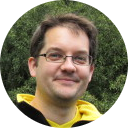Staying connected with the future of New Zealand's digital research
What are the opportunities and challenges around advanced computing for NZ's research communities 5 to 7 years in the future?
NeSI has reached out to various research leaders in New Zealand for the answer to this question. The research leaders have voiced the following as the key topics for the future of New Zealand's digital research.
- A) Collaboration and interdisciplinarity: Collaboration and interdisciplinarity are becoming more common, enabled by shared computational and analytical skills and language. As interdependencies develop across research investments and activities, the sector needs to enhance co-ordination and networks.
- B) Programming and analytical skills: Programming and analytical skills are becoming core to many research disciplines, with needs for support, training, and advice becoming critical as software becomes a common form of scientific models and methods.
- C) Increasing needs for advanced research computing: Growth in data, increasing complexity of models, increasing diversity of research drivers, and a spread of maturity suggest increasing needs for advanced research computing and for broadening support. Service experiences need to meet a range of researcher profiles, from those needing support through to those most self-sufficient.
- D) Māori data and sensitive data: There is an emergence of research teams working with Māori data, needing to support sovereignty and Vision Mātauranga, as with other forms of sensitive data such as in biomedical research and in working with population and administrative data.
There were exceptions, and when we listened to what each researcher had to say about their research community, we saw a diverse landscape with different levels of maturity of digital research within the groups. There were various challenges ranging from technology, skills, and governance, and there were also multitude of opportunities. See the bottom of this page for a description of the process.
What the research leaders are saying
The findings gathered here will inform research communities on what is happening around NZ in eResearch, and where research leaders see emerging opportunities and challenges are.
In this section, we present a selection of thought pieces shared by the researchers from various research communities.
For our first thought piece, we have Dr Thomas Etherington, who has commented on the research being done with his colleagues at Manaaki Whenua – Landcare Research.  Attribution: Dr Thomas Etherington - a geoinformatician and ecologist at Manaaki Whenua - Landcare Research, a member of New Zealand Ecological Society, and a fellow of Software Sustainability Institute. His research is interdisciplinary, using computational methods to examine environmental questions and problems through the combination of theories and methods from geography and ecology. He has deep interest in sustainable software – reproducible and open science, and how researchers interact with data. He says that although recent colleagues probably wouldn’t believe it, in the distant past he even spent time in the field tracking badgers and bears. In this thought piece he shares with us the challenges of the future where the researchers must work with big data and data from various non-traditional sources. Some of these may be citizen science data where data is much less structured, and hence traditional forms of data analysis are inappropriate. There will be much effort required moving forward working with big data in non-conventional ways. This ties in with B and C from the key topics above in a sense that researchers need to continue to learn new ways of working with data. He also shares the necessity of interdisciplinary nature of his research, and that it is crucial to build common vocabulary to be able to ask the right questions across people with different expertise. (See A from the key topics)
Continue reading: |
The process
Structured interviews were done with 26 research leaders from various institutions. The following 6 topics were the focus of the interviews, taking a view of the situation in 5 to 7 years time:
- Research context and drivers: What will be the main drivers that influence research?
- Research priorities: What sort of problems will you be solving?
- Collaboration: What kind of collaboration will be needed and to what extent?
- Research capabilities: What will be the skills and capabilities needed to achieve your research goals?
- Adoption of advanced research computing: What kind and how much of advanced research computing will be needed?
- Support for the development of key capabilities: What kind of support will be needed?
Based on the interviews, the initial findings were synthesized to inform NeSI's next business case. The interviewees were then contacted to share their thoughts in the form of thought pieces to be shared publicly with the research community. Similar consultation activities will connect NeSI more closely with researchers and their goals and needs. Looking ahead 5 to 7 years is speculative. NeSI will continue with conversations to clarify digital needs for NZ's research communities, offering a guide on the future.
What Next?
More thought pieces are on the way. As we gather more thought pieces, a synthesis of the findings will be added here to offer a higher level summary of what NZ's research leaders are saying about future challenges in eResearch.
Please subscribe to receive updates.
If you wish to tell us about your future digital needs and aspirations for your research community, please contact nooriyah.lohani@nesi.org.nz as we would love to talk to you.





